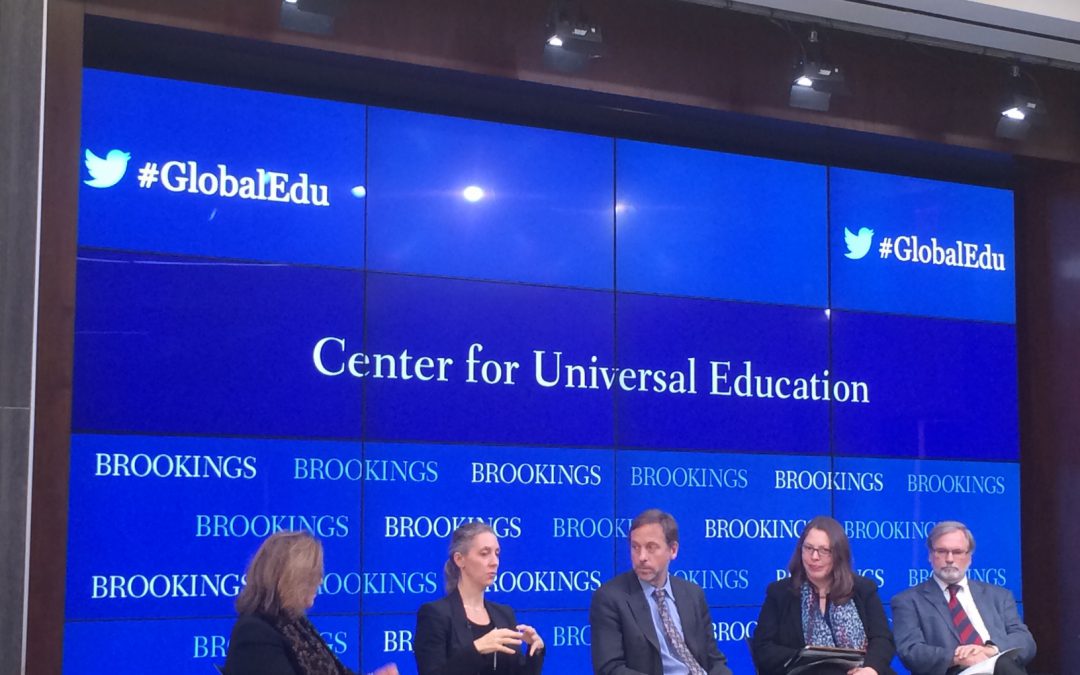WASHINGTON — The next president must make education worldwide a priority in order to improve conditions in unstable regions of the world, according to global education experts.
Rebecca Winthrop, director of Center for Universal Education at the Brookings Institution, said Wednesday that half of the younger generation across the globe “will not have the basic secondary level skills they need … to be successful in their personal lives or the world of work.”
At a Brookings event, framing recommendations for the next administration, many experts brought up the recent report by the Education Commission, an international body with links to the United Nations. The report warns that “if current trends continue, by 2030 just four out of 10 children of school age in low- and middle-income countries will be on track to gain basic secondary-level skills.
The focus going forward needs to be on girls and women, Winthrop said.
“If you educate a girl, you have such a big ripple effect, not only on her life and her kids’ lives, but it really has transformational impacts to her community, lots of returns on investment in terms of health, in terms of economic growth,” Winthrop said.
That’s the thinking of the Obama administration.
In March 2015, Barack and Michelle Obama created Let Girls Learn, a government initiative that promotes the right to education for girls around the world. The initiative includes the State Department, USAID, the Peace Corps, and the Millennium Challenge Corp.
In her policy briefing for Brookings, Winthrop recommended that the Trump administration continue building on this government initiative.
Alice Albright, chief executive officer for Global Partnership for Education, an organization that works with countries to give kids more access to quality education, said global education is in the U.S. national interest and must be expanded.
Legislation in Congress seeks to do just that.
Dan Stoner, an associate vice president at Save the Children, an international NGO working for children’s rights, said he hopes Congress will be able to pass the Education for All Act during the lame duck session, which opened this week.
The bill states that education in developing countries is in the U.S. national interest. It would require the president to create a “comprehensive U.S. strategy” for promoting global education through U.S. AID – the agency for international development.
“We have been trying to pass this in Congress for more than a decade, and it’s finally gotten steam,” Stoner said.
The U.S. House approved the bill in September on a voice vote. It’s awaiting further action in the Senate Foreign Relations Committee.
The Education Commission, led by former British Prime Minister Gordon Brown, was convened last year and is made up of former world leaders, researchers and international education experts.

